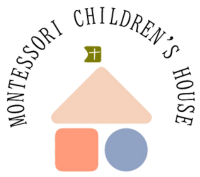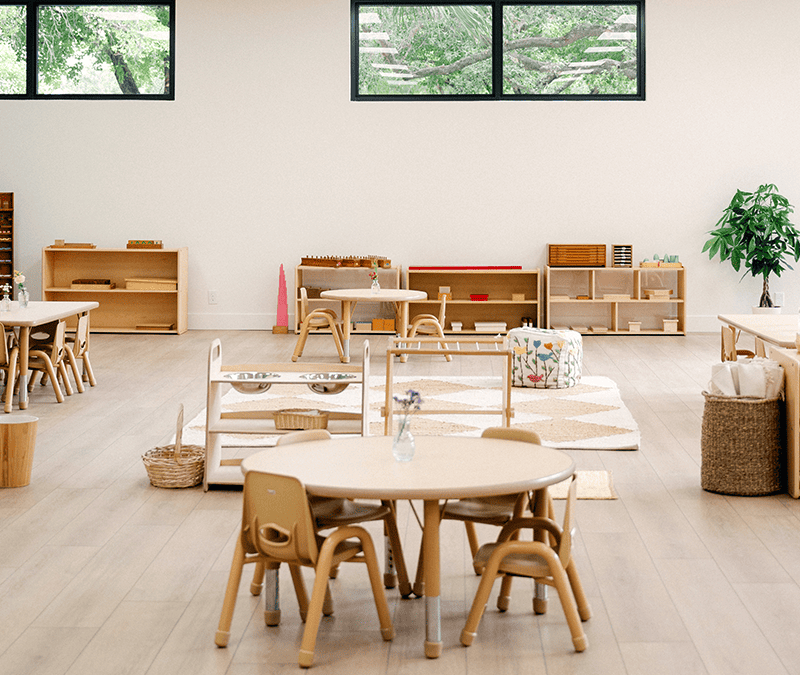As a parent, you only want the best for your child. This can lead to tough decisions regarding their education, though. Should you try a Montessori program in Miami Lakes, FL, or look for a more traditional school environment for your little one?
Montessori matters if you’re seeking unique early childhood education methods that have a lasting impact. Take a closer look at the benefits you and your children stand to gain by enrolling them in a Montessori school.
Children Participate in Independent Learning
If you want your child to grow up to be a free thinker, a Montessori education may be the ideal solution. Independent learning is one of the pillars of Dr. Maria Montessori’s methodology that began more than a century ago. Your little one can become more independent from a young age thanks to this environment.
Rather than sitting back and letting a teacher lead them through a puzzle, students can take charge of the activity. They’ll develop their own ideas for solving the puzzle and put them to the test. Their teacher will only step in when necessary instead of spearheading the lesson.
Independence doesn’t just apply to math, reading, or geography lessons. Toddlers and preschool-age children will learn essential life skills to complete on their own instead of relying on an adult. For example, if they spill some of their drink, the Montessori teacher will guide them to clean it up themselves.
Self-Directed Exploration May Lead to Future Success
Many of the world’s most famous figures went to Montessori schools as children, including Amazon founder Jeff Bezos, Google co-founders Larry Page and Sergey Brin, and music superstar Taylor Swift. This doesn’t necessarily mean that your child will grow up to be a Grammy-winning artist or a tech CEO. However, they may be successful in future endeavors thanks to this method of early child development.
Montessori matters because it lets preschool-age children take charge of their imagination. They have the freedom to engage in hands-on activities with minimal adult interference. This ultimately teaches children to develop unique ways of thinking that traditional school systems may hinder.
Children Can Become Natural Leaders
Traditional classrooms often teach some leadership skills. For example, students may alternate being line leaders when they venture outside. However, these roles can be forced and may not actually foster the same meaningful skills for use later in life.
A natural focus on building leadership skills is why Montessori matters.
Say one young student starts an activity by themselves. When two others notice them and want to join, they may have questions about how to play. The initial student can guide them and lead the way.
Even if you have a naturally shy toddler, you’ll be amazed at some of the leadership and social skills they’ll develop with a Montessori education. This fundamental part of early childhood education will serve them well later in life.
Early Childhood Educators Don’t Ignore the Standard Curriculum
A common misconception about Montessori classrooms is that children don’t learn any valuable skills based on a dedicated curriculum. In reality, these programs focus on five key elements:
- Mathematics: Classroom activities involve counting numbers, solving problems, recognizing numerals, and much more.
- Language: Students will gain a better understanding of language and vocabulary through various alphabet-focused materials.
- Sensorial skills: Your child will distinguish different shapes and colors through sensory work.
- Cultural studies: Instructors give children an outlet to learn about different parts of the world, other cultures, music, and more.
- Practical life skills: Young students will develop the skills that they’ll need in daily life. This can pertain to cleaning and feeding themselves, as well as vital social skills.
Don’t make the mistake of assuming that these programs don’t teach children valuable skills. Montessori matters because it sticks to a set curriculum just like any other school setting.
Montessori Classrooms Exist for Children of All Ages
Many people believe that a Montessori classroom is only an option for children before they begin kindergarten. While most programs cater to those who are under the age of six, there are options for older children as well. Some parents opt to keep their children in a Montessori program until they turn 18.
Classrooms are grouped according to an age range:
- Infants and toddlers: From birth until three years old
- Early childhood: Ages three through six
- Elementary: For children ages 6 to 9 and 9 to 12
- Secondary: Split into groups for 12 to 15-year-olds and 15 to 18-year-olds
The educational material shifts based on each group. For instance, during early childhood, students focus on math, language, and sensory skills. As they enter adolescence, the material focuses more on discovering their passions and thinking about potential career paths, spending time on more complex topics and creative endeavors.
Mingling With Other Students Grows a Child’s Social Skills
One of the most unique things about a Montessori classroom is how it includes children within a three-year age range. This may seem ineffective at first. After all, how could a three-year-old thrive in the same setting as an advanced six-year-old?
When you take a closer look at the method, you’ll find that learning among other ages is key to impactful learning. Children can develop impressive social skills by sharing a space with others, including those older and younger than them.
The older students can serve as mentors and leaders to the younger ones. Those who are on the younger side of the age range can learn different skills quickly thanks to working with their peers. Their collaboration will teach them about respect, good communication, and friendship.
The Educational Materials Are Appealing to Children
Picture a classroom full of rambunctious four-year-olds. The teacher may ask all of them to sit still and work on making the same craft, but some kids prefer a different activity and refuse to participate. The situation can quickly get out of hand and make those children more resistant to following instructions.
This is why Montessori matters. Teachers don’t force any activities on any student, since they all have different needs and interests. Instead, kids can choose what appeals to them.
For some students, this may be quietly coloring a map. For others, it could be matching blocks by their shape and color. Each of these activities has an educational purpose and will benefit the child.
This ultimately creates a love of learning that will be invaluable for students going forward. Many parents who want their children to succeed in every classroom can’t go wrong with a Montessori school as their starting point.
Montessori Programs Build a Child’s Confidence
Any adult who struggled in school could tell you how it impacted them. Doing poorly on a test or needing a tutor for a subject that a friend aces can shatter one’s confidence. This is why Montessori matters in an age when standardized testing rules most education systems.
Educators don’t measure a student’s success based on how well they compare to their peers. Instead, they focus on their individual strengths, weaknesses, and interests. Teachers assess each child’s progress and introduce them to certain materials and activities that match their level.
This allows each student to learn at their own pace. It’s a much better method than the alternative, where those who fall behind in one area may be hard on themselves, lose confidence, or begin to lose interest in school.
Keeping students engaged in every activity fosters learning and self-esteem. If you worry about your child doing well in school, consider enrolling them in a Montessori program. They will learn valuable skills in a safe, reassuring setting.
Educators Play a Key Role in Guiding Children
A Montessori classroom isn’t completely without structure. Instructors may not stand at a board and deliver a lesson to everyone at once, but they are integral to a student’s success.
In this environment, teachers serve as guides and mentors. They arrange all of the materials around the room to promote learning. They’ll observe each student to determine how well they interact with the material and their peers.
Educators aren’t afraid to step in when necessary and provide discipline and guidance. But compared to a traditional classroom teacher, their primary responsibility is to cultivate a student’s independence and help them grow.
This type of individualized teaching is something you can only experience in a Montessori school. You give your child a nurturing environment to develop a diverse skillset.
Foster Your Child’s Success With a Montessori Education
Montessori matters in so many ways. Whether you wish for your child to develop social skills, become an independent thinker, or learn in an untraditional environment, you can’t go wrong with this type of education.
Enroll them in Montessori Children’s House of Miami Lakes to reap the many advantages of our program. We understand the role of a Montessori teacher and ensure our instructors guide children without holding them back. Our team is ready to welcome your youngster to the classroom.
To see if we’re the right fit for you, give us a call at (305) 823-5632.

